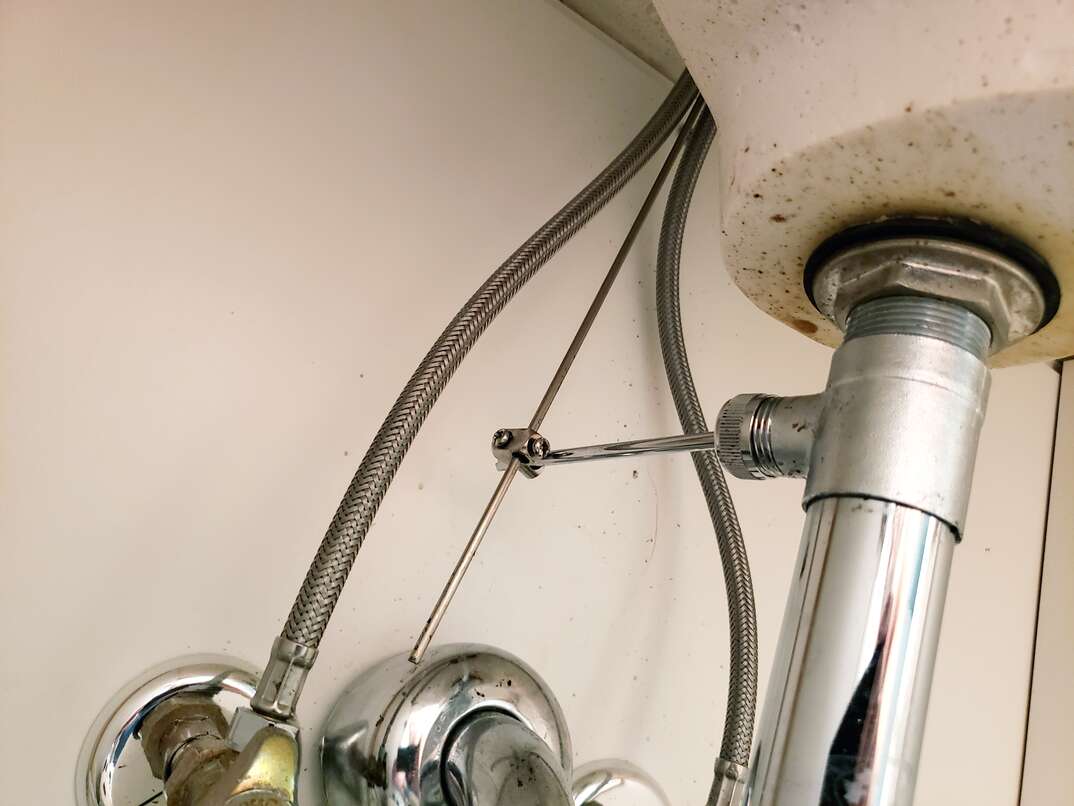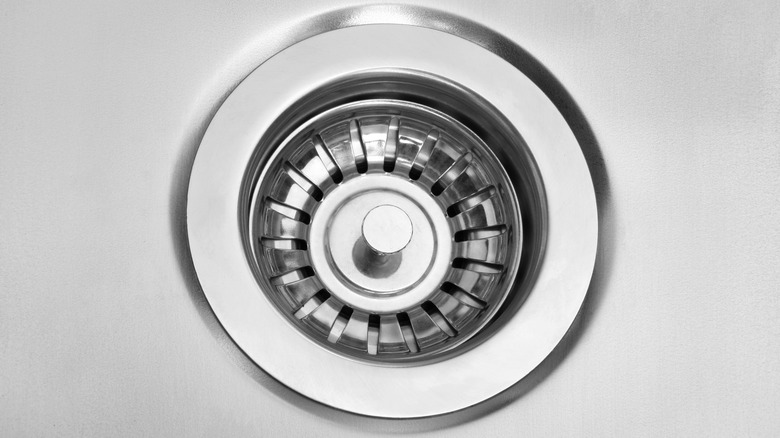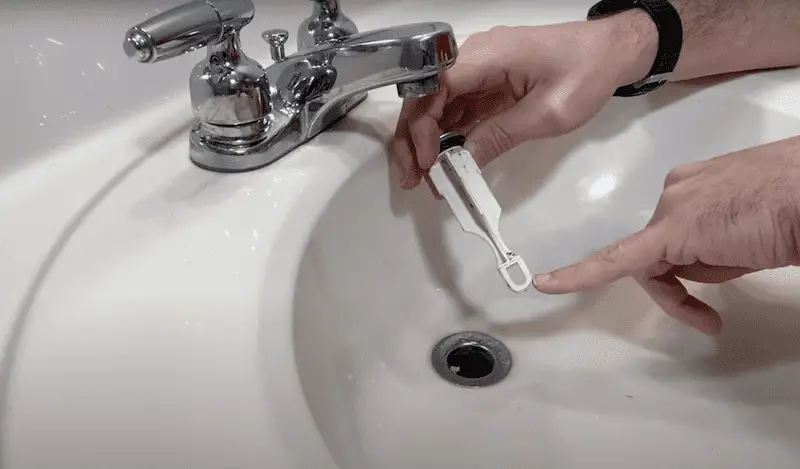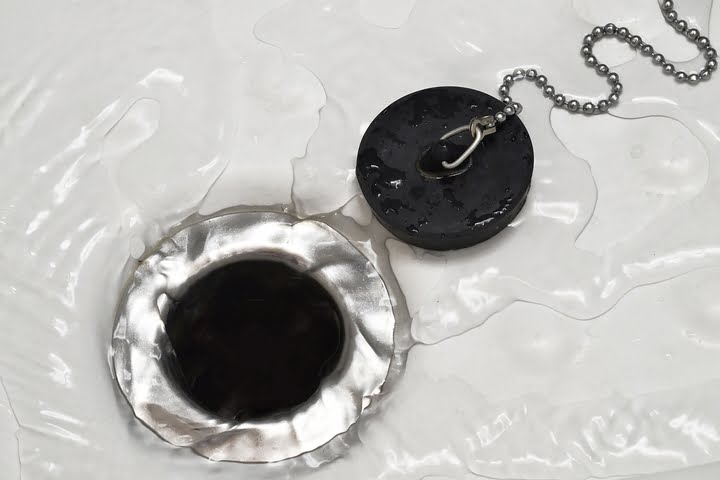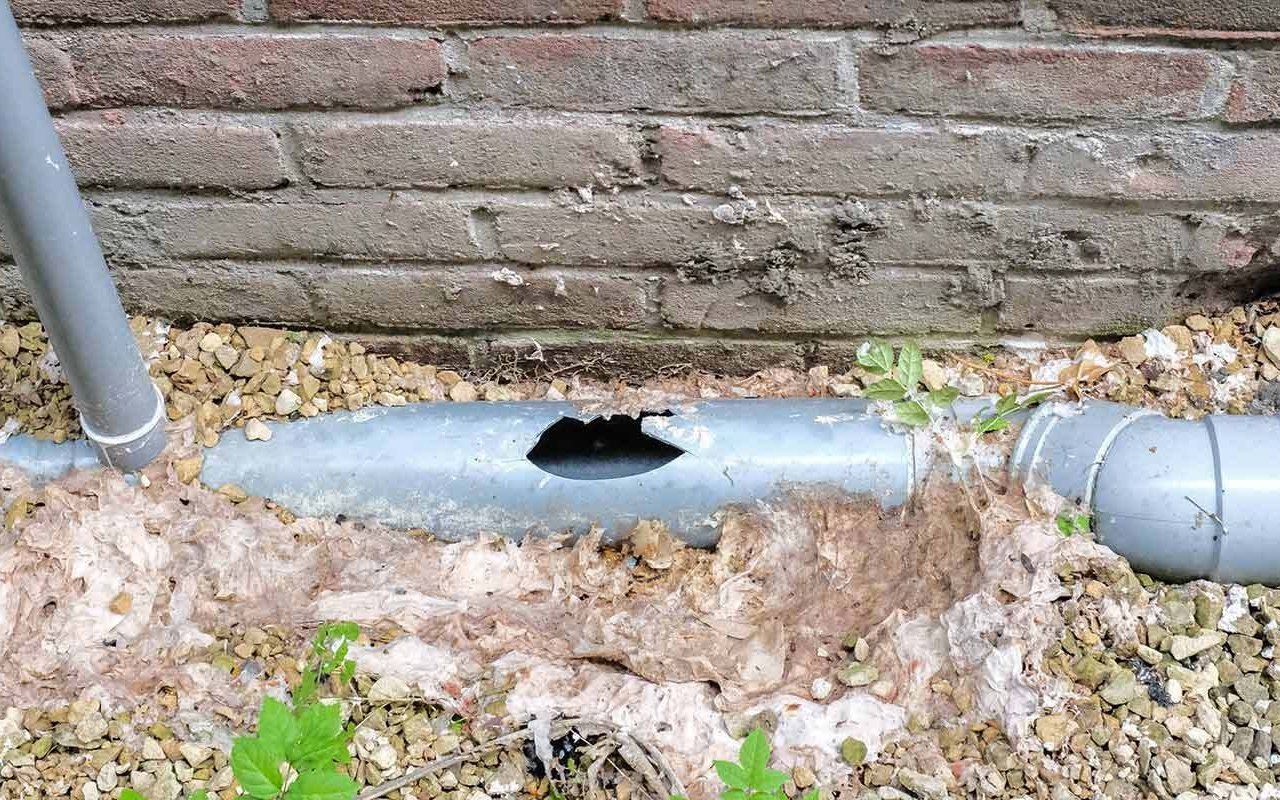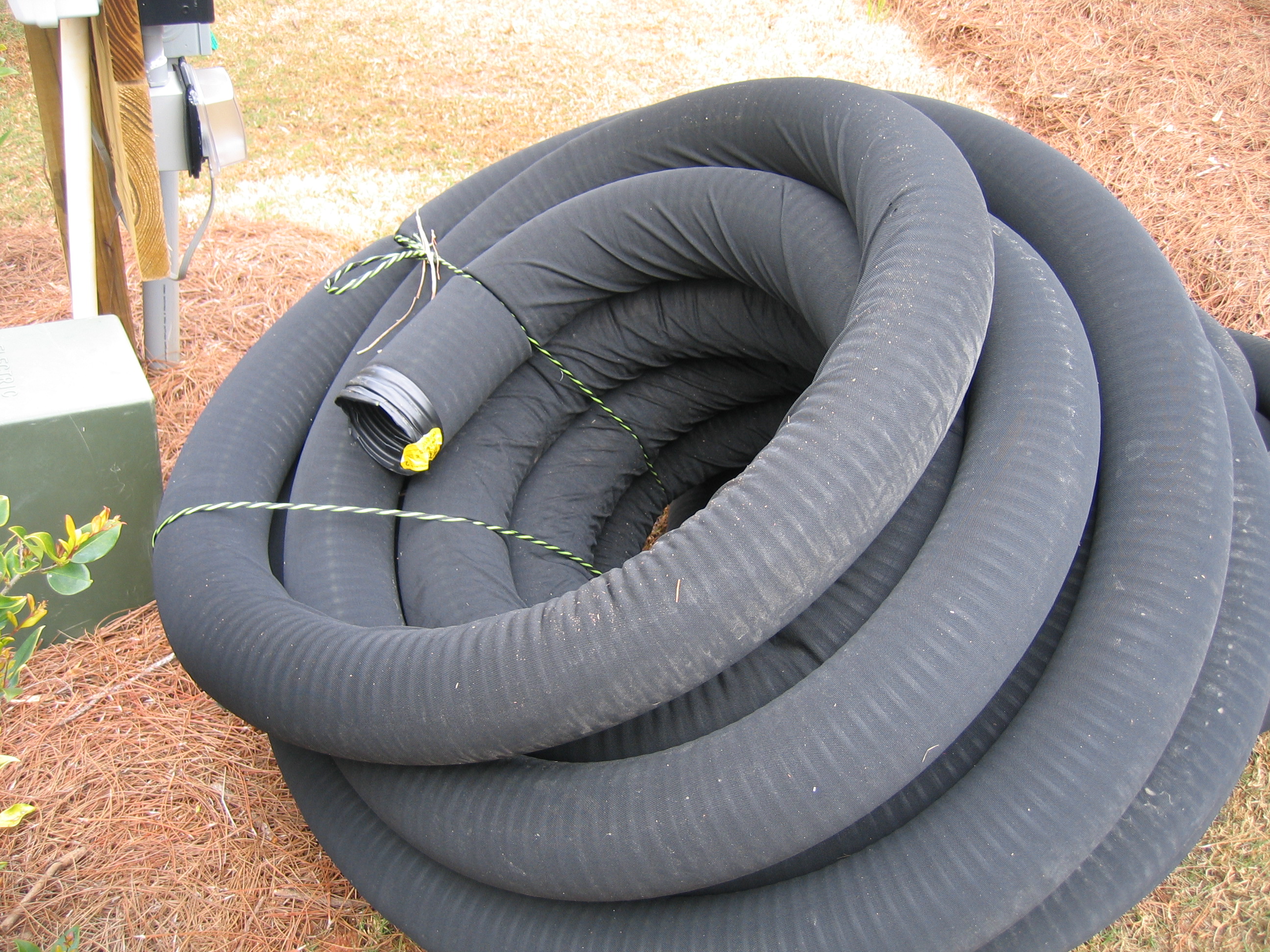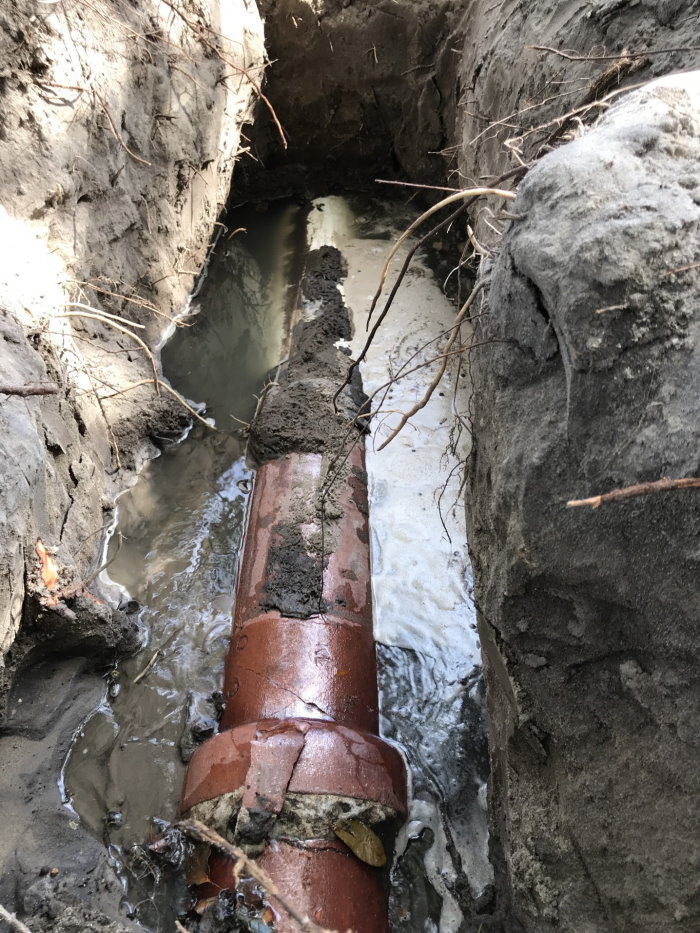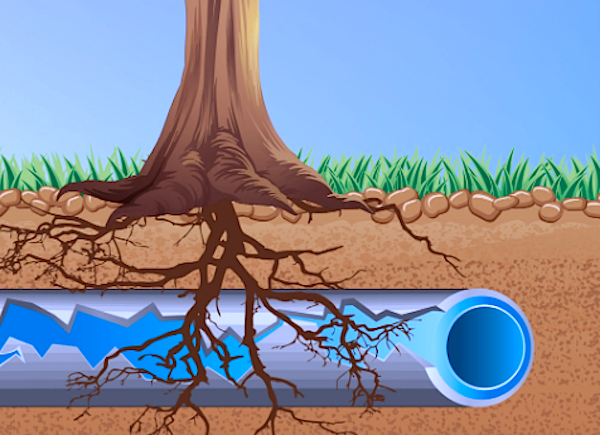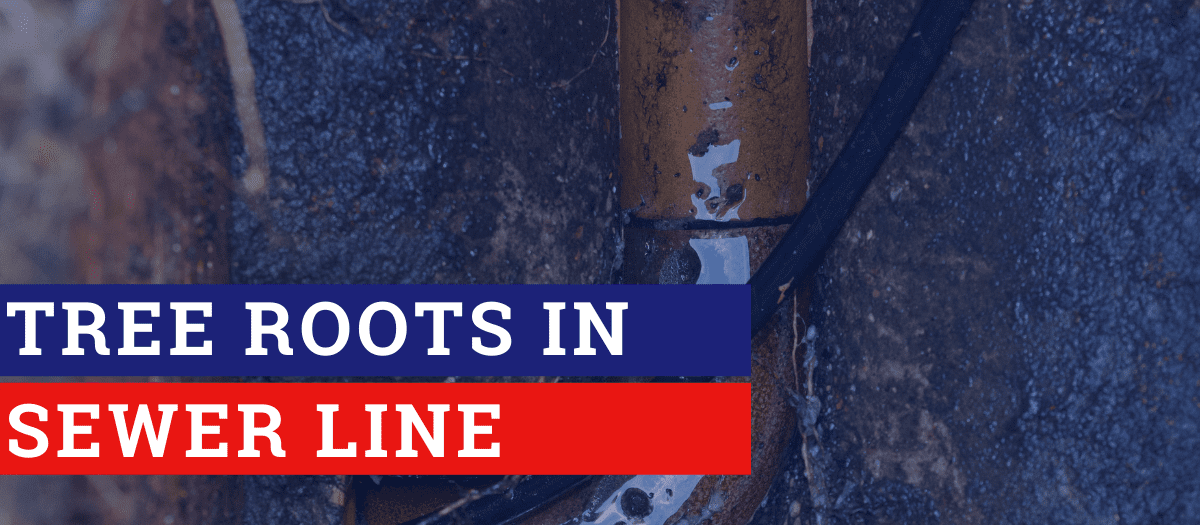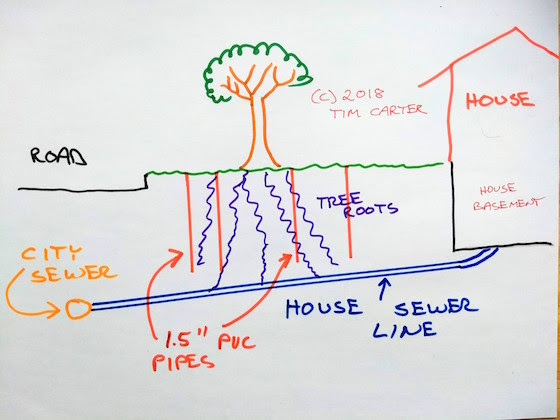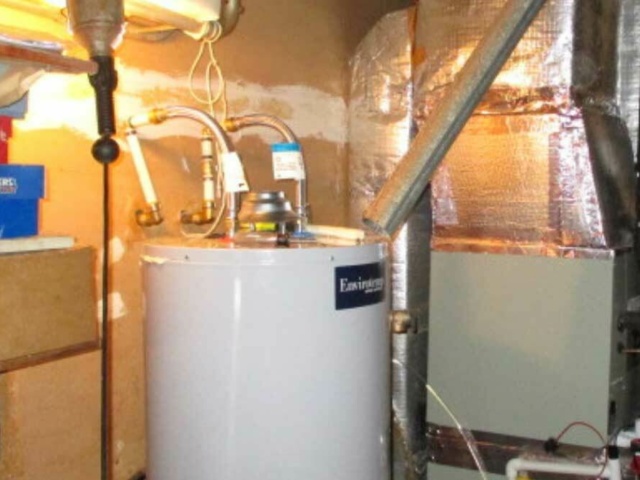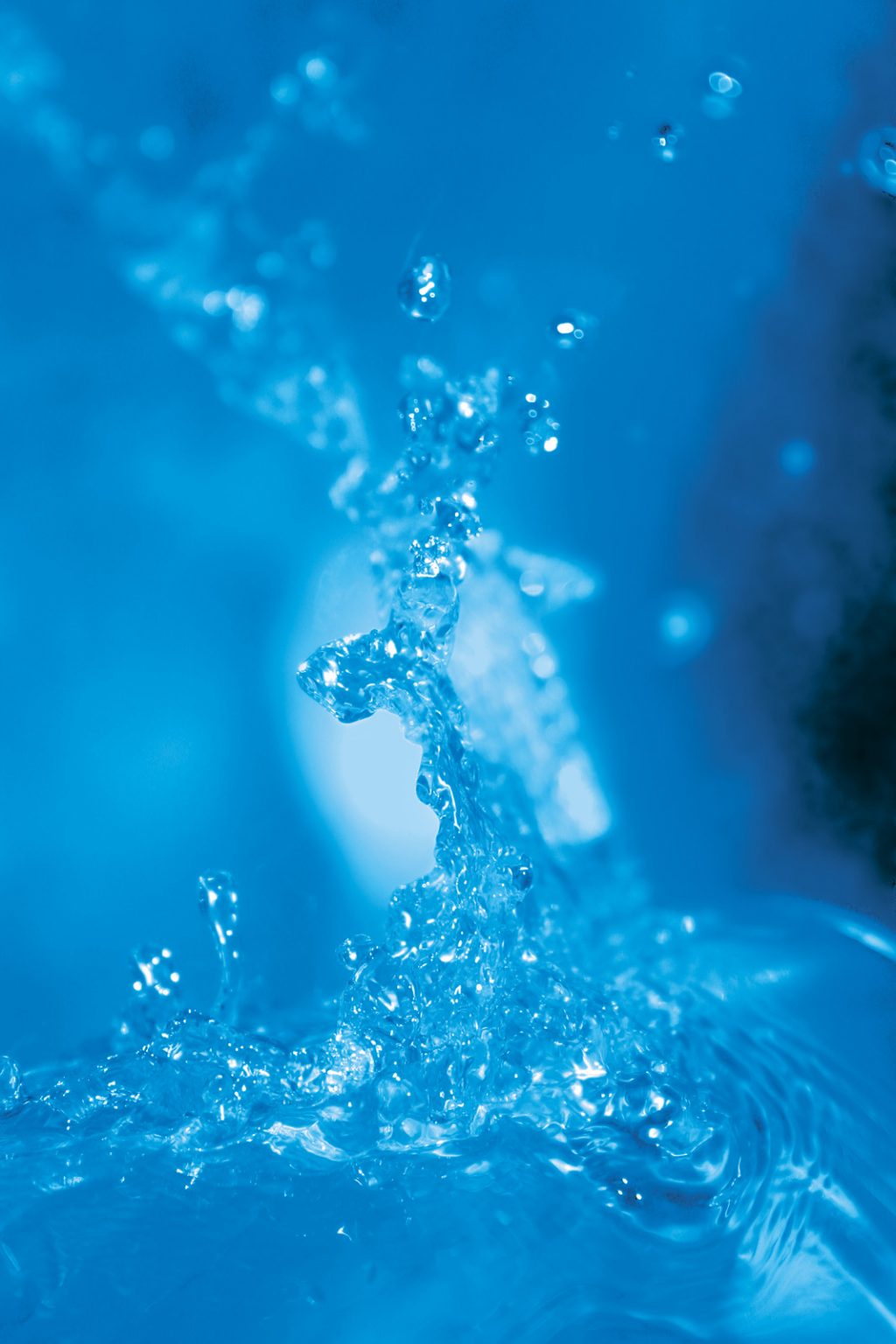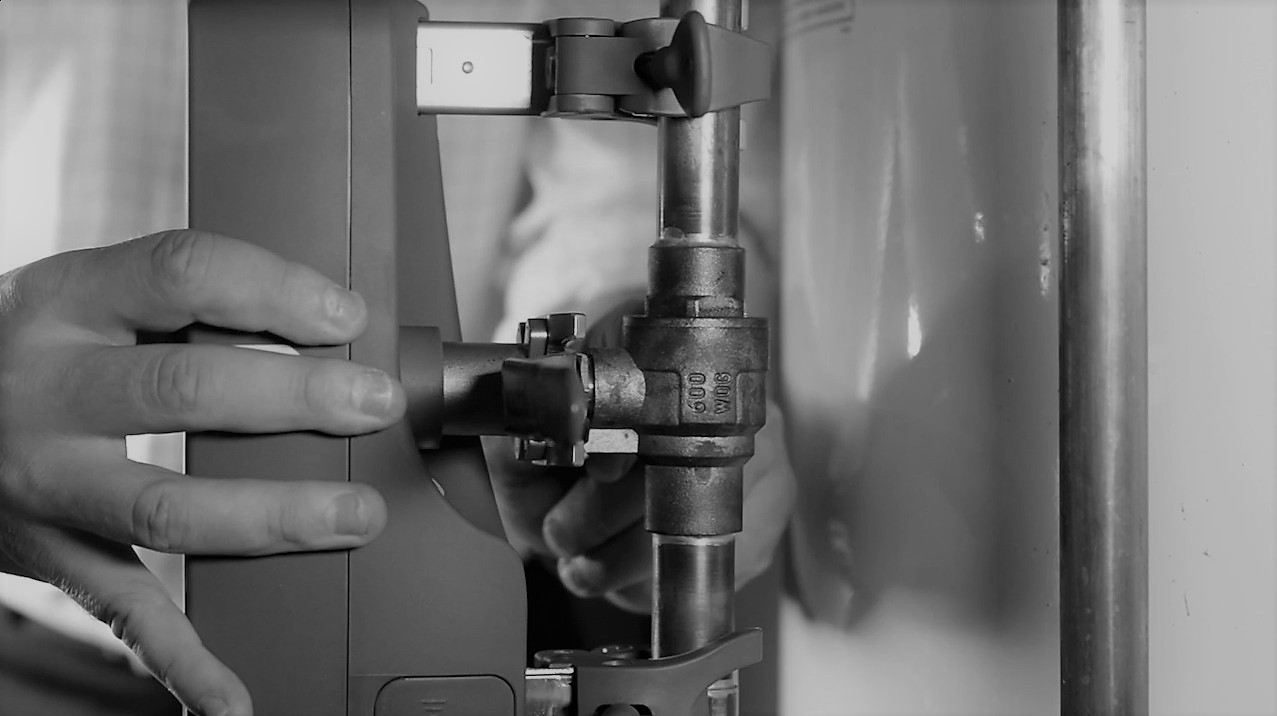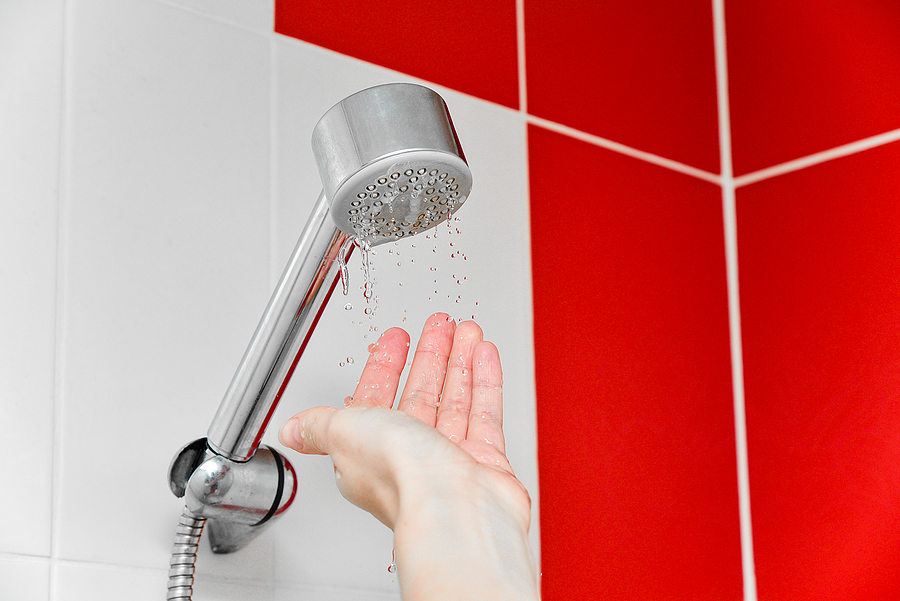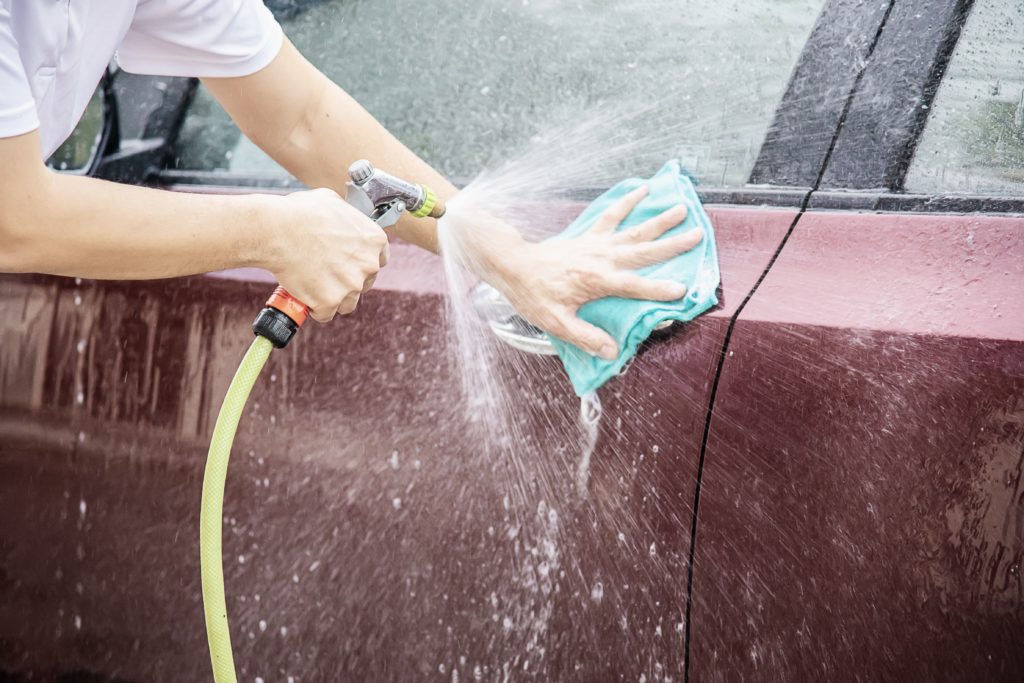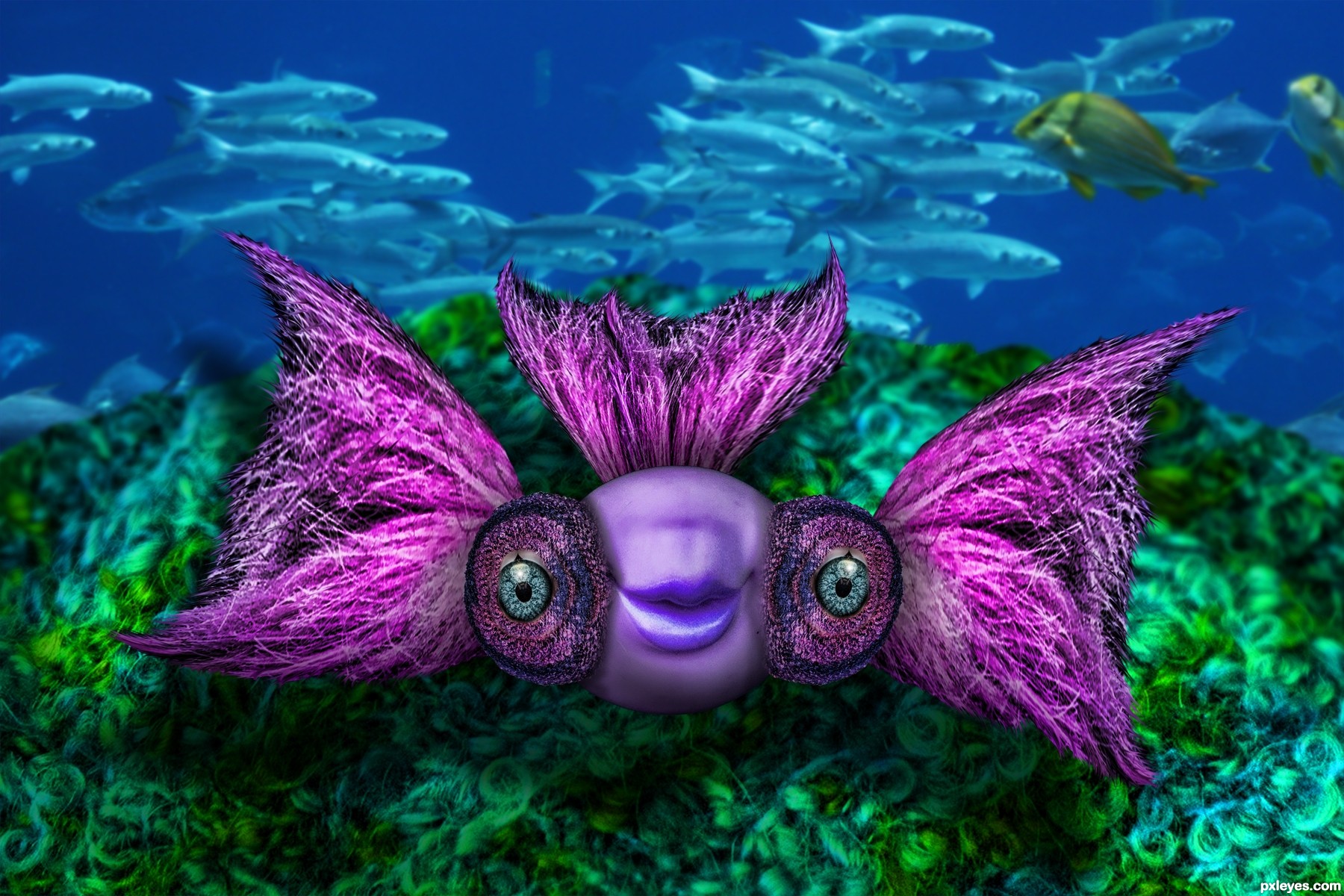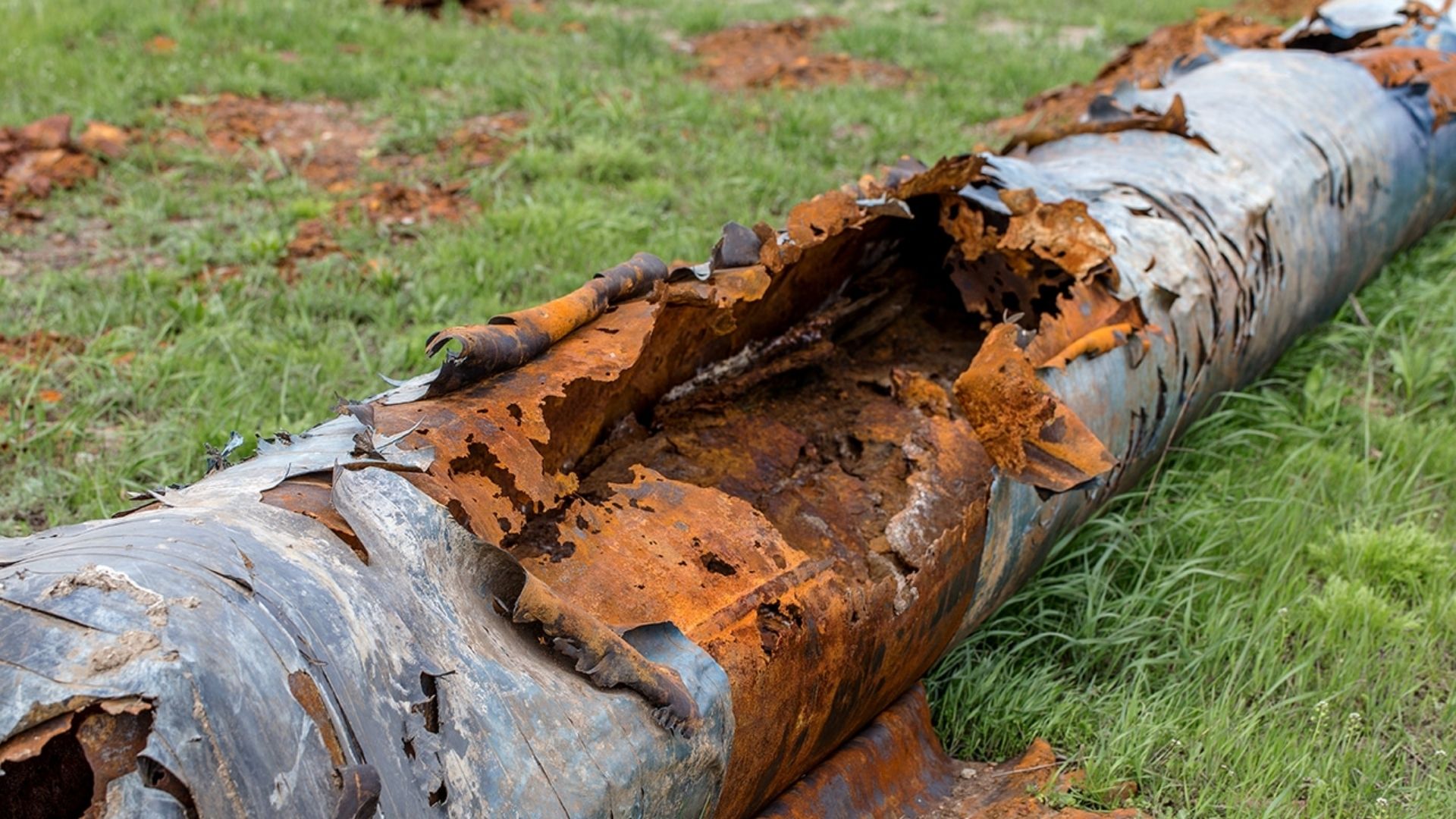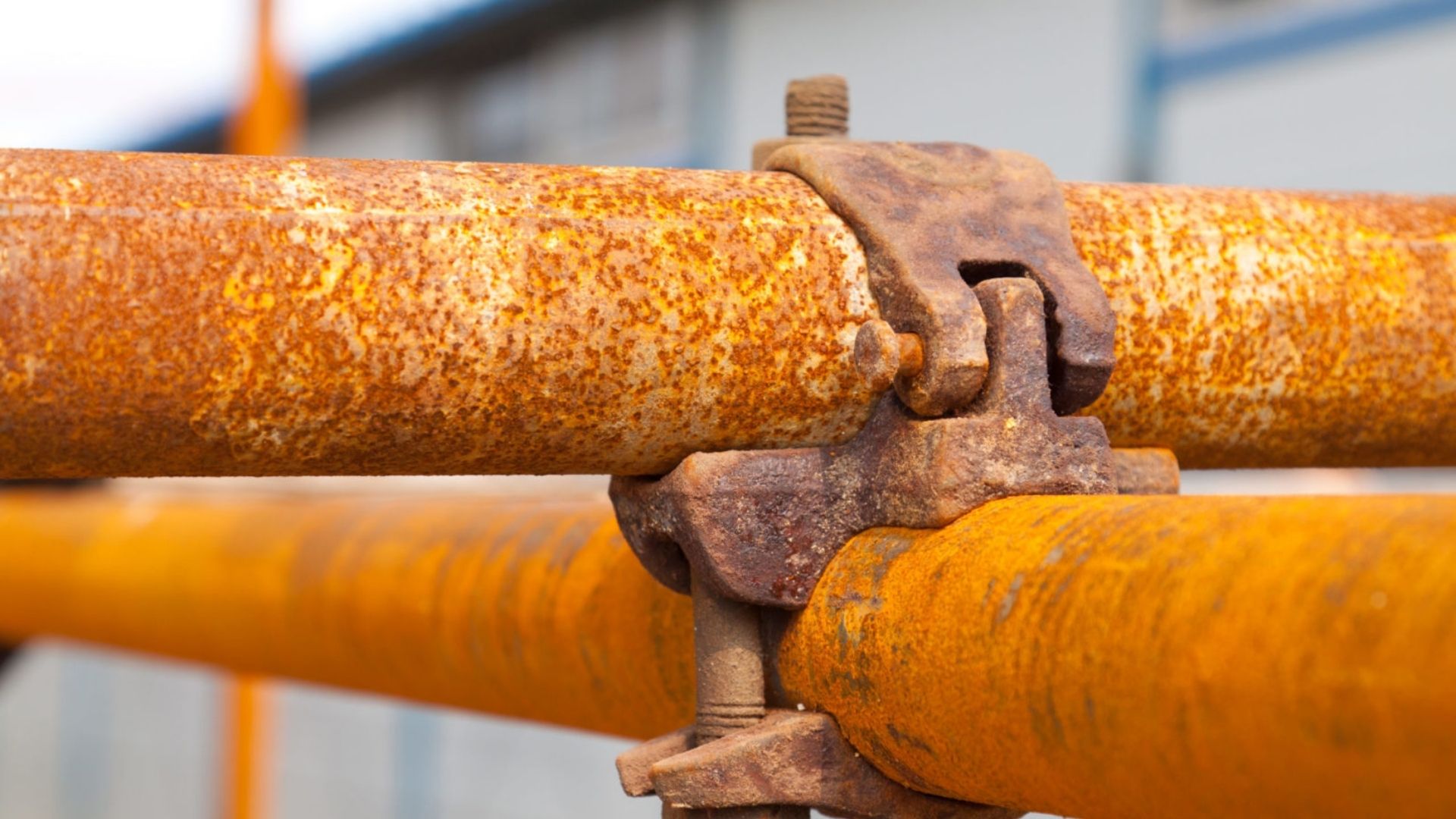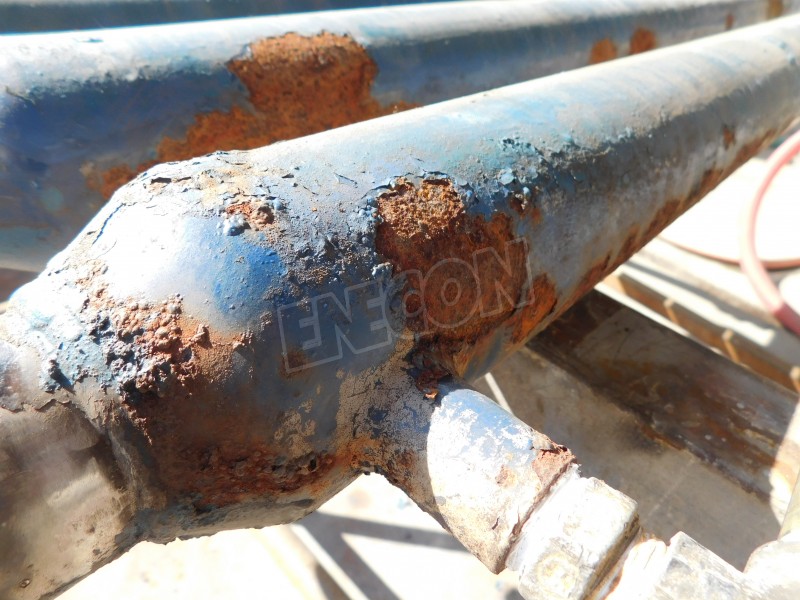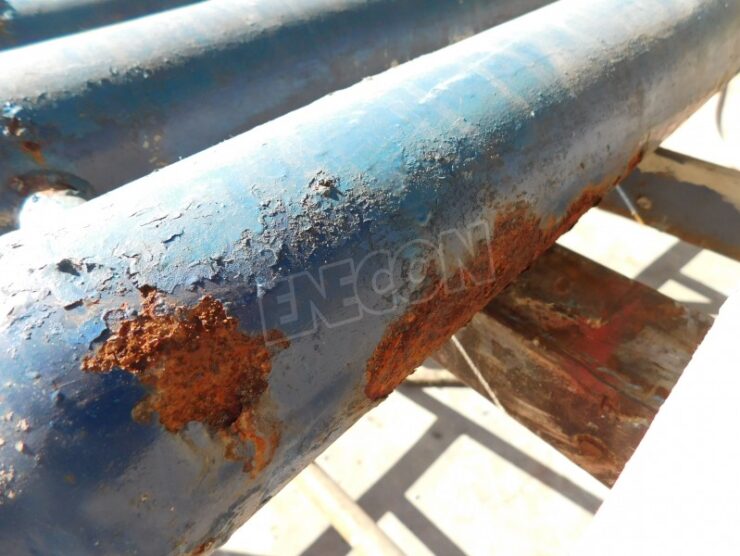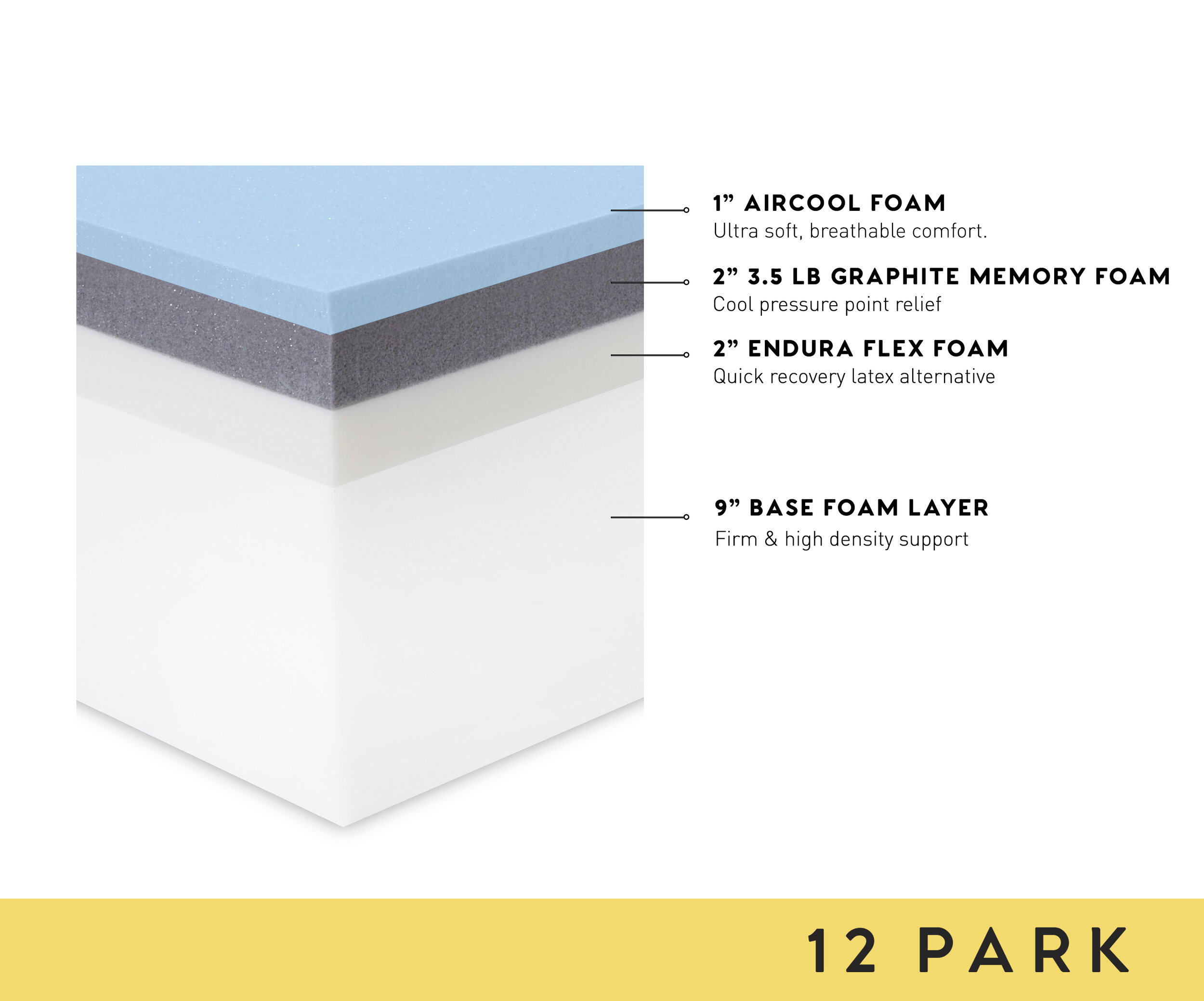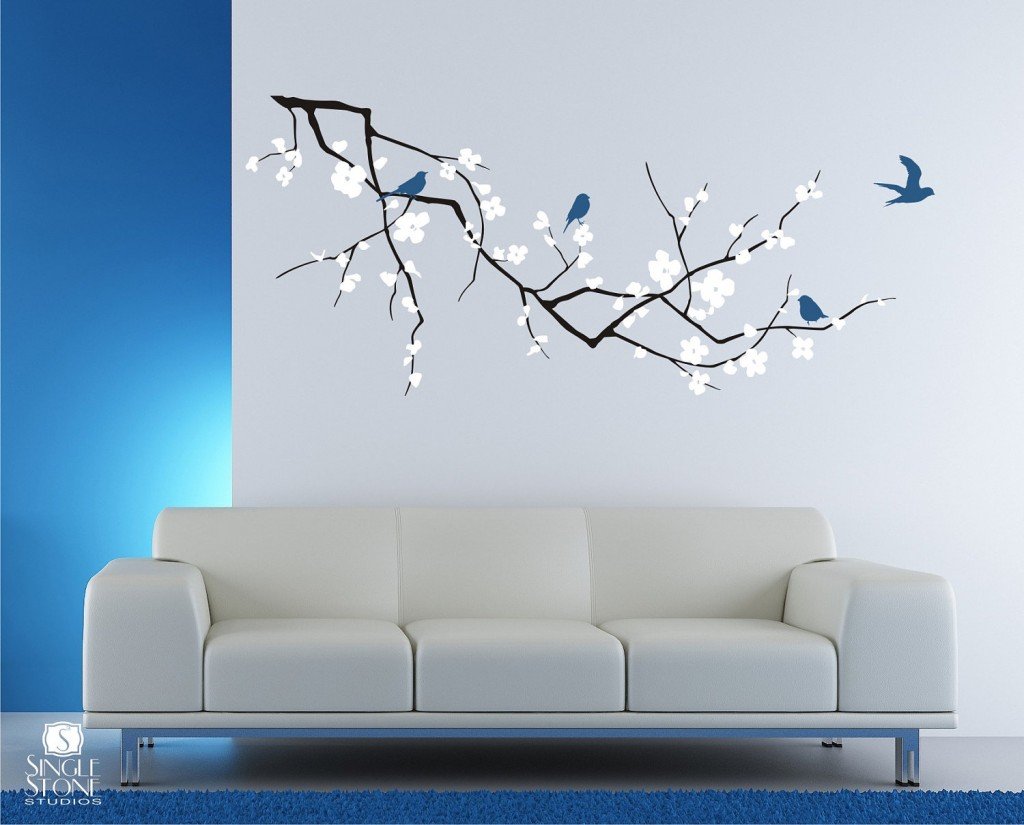If your kitchen sink is not draining on either side, the first thing you should check is if there is a clog in your drain. Clogs can be caused by a variety of things, such as food particles, hair, or soap scum. These clogs can prevent water from flowing freely down your drain, causing it to back up and not drain properly. To remove a clog, you can try using a plunger or a drain snake. If the clog is deeper in your pipes, you may need to call a professional plumber to clear it out.1. Clogged Drain
In addition to clogs, your kitchen sink not draining could also be caused by blocked pipes. This can happen if something gets stuck in your pipes, such as a large piece of food or an object that accidentally fell down the drain. Blocked pipes can also be caused by a buildup of debris over time. To fix this issue, you may need to use a drain snake or call a plumber to clear out your pipes.2. Blocked Pipes
If you regularly pour grease down your kitchen sink, it could be causing your sink to not drain properly. Grease can solidify and stick to the walls of your pipes, creating a buildup that restricts water flow. To prevent this issue, it's important to properly dispose of grease by pouring it into a separate container and throwing it in the trash. You can also use hot water and dish soap to break down any grease buildup in your pipes.3. Grease Buildup
If your kitchen sink has a garbage disposal, it could be the culprit behind your drainage issues. When the disposal is jammed, it can prevent water from draining properly. To check if this is the issue, turn off the disposal and look for any objects stuck inside. You can use tongs or pliers to remove the object and then try running water to see if the sink drains properly. If the disposal is still jammed, you may need to call a plumber for assistance.4. Garbage Disposal Jam
Sometimes, the problem with your kitchen sink not draining could be as simple as a faulty drain stopper. If the stopper is not closing properly, it can create a blockage in your drain. You can check the stopper by removing it and cleaning it of any debris. If it still does not close properly, you may need to replace it with a new one.5. Faulty Drain Stopper
If none of the above solutions work, it's possible that there is a broken drain pipe causing your sink to not drain properly. This can happen due to age, wear and tear, or even tree roots that have grown into your pipes. In this case, it's best to call a professional plumber to assess the situation and make necessary repairs.6. Broken Drain Pipe
Tree roots can also be a major cause of drainage issues in your kitchen sink. If you have trees or shrubs planted near your sewer line, their roots may grow into the pipes and create blockages. Signs of tree roots in your sewer line include slow drainage, gurgling sounds, and foul odors coming from your sink. In this case, a professional plumber can use specialized tools to remove the roots and repair any damage to your sewer line.7. Tree Roots in Sewer Line
Proper venting is essential for your plumbing system to function properly. If your kitchen sink is not draining, it could be because your drain vent is blocked or damaged. This prevents air from circulating and can create a vacuum that stops water from draining. A professional plumber can inspect your vent and make any necessary repairs to ensure proper venting.8. Improper Venting
If your kitchen sink is not draining on either side and there is low water pressure, this could indicate a problem with your water supply. Low water pressure can be caused by a variety of issues, such as a clogged aerator, a faulty water heater, or a leak in your pipes. A plumber can diagnose the issue and make any necessary repairs to restore proper water pressure.9. Low Water Pressure
Over time, pipes can corrode and deteriorate, especially if they are old or made of metal. This can cause leaks, clogs, and other drainage issues in your kitchen sink. If you notice any signs of corrosion, such as rust, discoloration, or cracks, it's important to call a plumber to replace the damaged pipes and prevent further issues. If your kitchen sink is not draining on either side, it's important to address the issue as soon as possible to prevent further damage to your plumbing system. By understanding the common causes of drainage issues and taking preventative measures, you can keep your kitchen sink functioning properly and avoid costly repairs in the future.10. Corroded Pipes
The Importance of a Properly Functioning Kitchen Sink
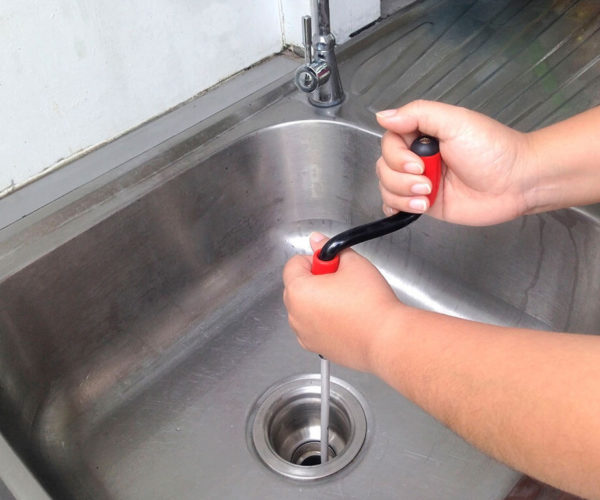
Why a Kitchen Sink is Essential in House Design
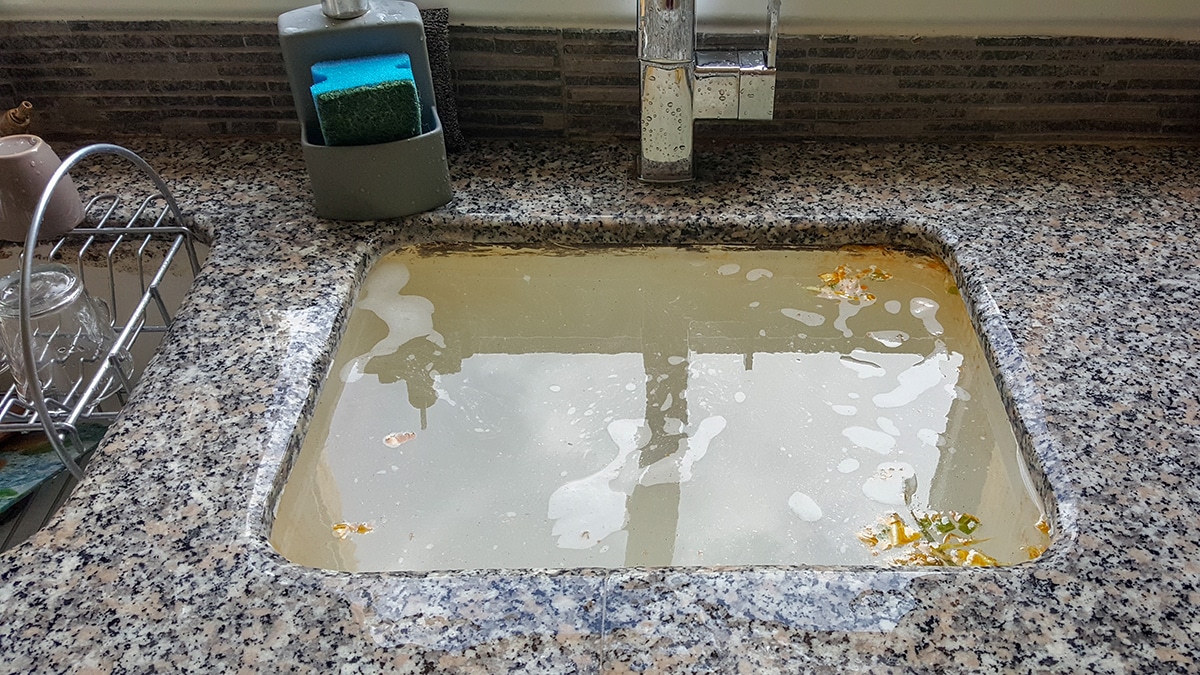 The kitchen sink is often referred to as the heart of the kitchen. It is where we prepare and wash our food, clean our dishes, and even fill up our glasses with water. With so many daily tasks revolving around the kitchen sink, it is crucial that it functions properly. However, when the kitchen sink is not draining on either side, it can cause a major disruption in our daily routines and create a frustrating and unsanitary environment in the kitchen.
The kitchen sink is often referred to as the heart of the kitchen. It is where we prepare and wash our food, clean our dishes, and even fill up our glasses with water. With so many daily tasks revolving around the kitchen sink, it is crucial that it functions properly. However, when the kitchen sink is not draining on either side, it can cause a major disruption in our daily routines and create a frustrating and unsanitary environment in the kitchen.
Causes of a Kitchen Sink Not Draining on Either Side
 There are several reasons why a kitchen sink may not be draining on either side. One common cause is a clogged drain. Over time, food particles, grease, and other debris can build up in the pipes and cause a blockage, preventing water from flowing freely. Another possible cause is a faulty or damaged drain pipe. If the pipe is cracked or broken, it can hinder the proper drainage of water from the sink. Additionally, a malfunctioning garbage disposal or improper installation of the sink can also contribute to drainage issues.
There are several reasons why a kitchen sink may not be draining on either side. One common cause is a clogged drain. Over time, food particles, grease, and other debris can build up in the pipes and cause a blockage, preventing water from flowing freely. Another possible cause is a faulty or damaged drain pipe. If the pipe is cracked or broken, it can hinder the proper drainage of water from the sink. Additionally, a malfunctioning garbage disposal or improper installation of the sink can also contribute to drainage issues.
The Consequences of a Kitchen Sink Not Draining on Either Side
 Aside from the obvious inconvenience of not being able to use the sink properly, there are other consequences of a kitchen sink not draining on either side. Standing water in the sink can quickly become a breeding ground for bacteria and germs, posing a health risk to those using the sink. It can also cause unpleasant odors to linger in the kitchen. Furthermore, if the issue is not addressed promptly, it can lead to more significant and costly plumbing problems in the future.
Aside from the obvious inconvenience of not being able to use the sink properly, there are other consequences of a kitchen sink not draining on either side. Standing water in the sink can quickly become a breeding ground for bacteria and germs, posing a health risk to those using the sink. It can also cause unpleasant odors to linger in the kitchen. Furthermore, if the issue is not addressed promptly, it can lead to more significant and costly plumbing problems in the future.
The Solution: Proper Maintenance and Repair
 To ensure that your kitchen sink drains properly, regular maintenance is key. This includes avoiding putting large food scraps and grease down the sink, using a drain stopper to catch debris, and regularly cleaning the sink and drain with a mixture of hot water and vinegar. However, if the problem persists, it is best to seek professional help. A licensed plumber can properly diagnose the issue and provide the necessary repairs or replacements to get your kitchen sink draining efficiently once again.
To ensure that your kitchen sink drains properly, regular maintenance is key. This includes avoiding putting large food scraps and grease down the sink, using a drain stopper to catch debris, and regularly cleaning the sink and drain with a mixture of hot water and vinegar. However, if the problem persists, it is best to seek professional help. A licensed plumber can properly diagnose the issue and provide the necessary repairs or replacements to get your kitchen sink draining efficiently once again.
In Conclusion
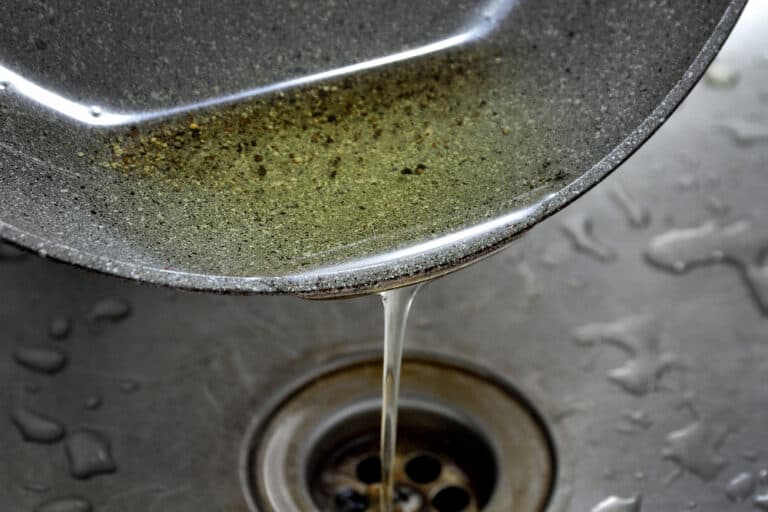 In a well-designed house, every component plays a vital role in creating a functional and comfortable living space. The kitchen sink is no exception. A properly functioning kitchen sink not only adds convenience to our daily lives, but it also ensures a safe and sanitary environment in the kitchen. By understanding the causes and consequences of a kitchen sink not draining on either side, and taking the necessary steps to maintain and repair it, we can ensure that our kitchen remains the heart of our home.
In a well-designed house, every component plays a vital role in creating a functional and comfortable living space. The kitchen sink is no exception. A properly functioning kitchen sink not only adds convenience to our daily lives, but it also ensures a safe and sanitary environment in the kitchen. By understanding the causes and consequences of a kitchen sink not draining on either side, and taking the necessary steps to maintain and repair it, we can ensure that our kitchen remains the heart of our home.




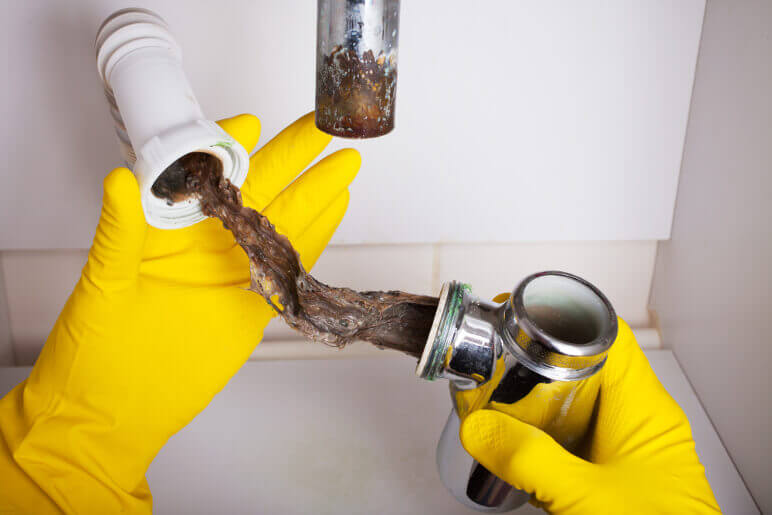
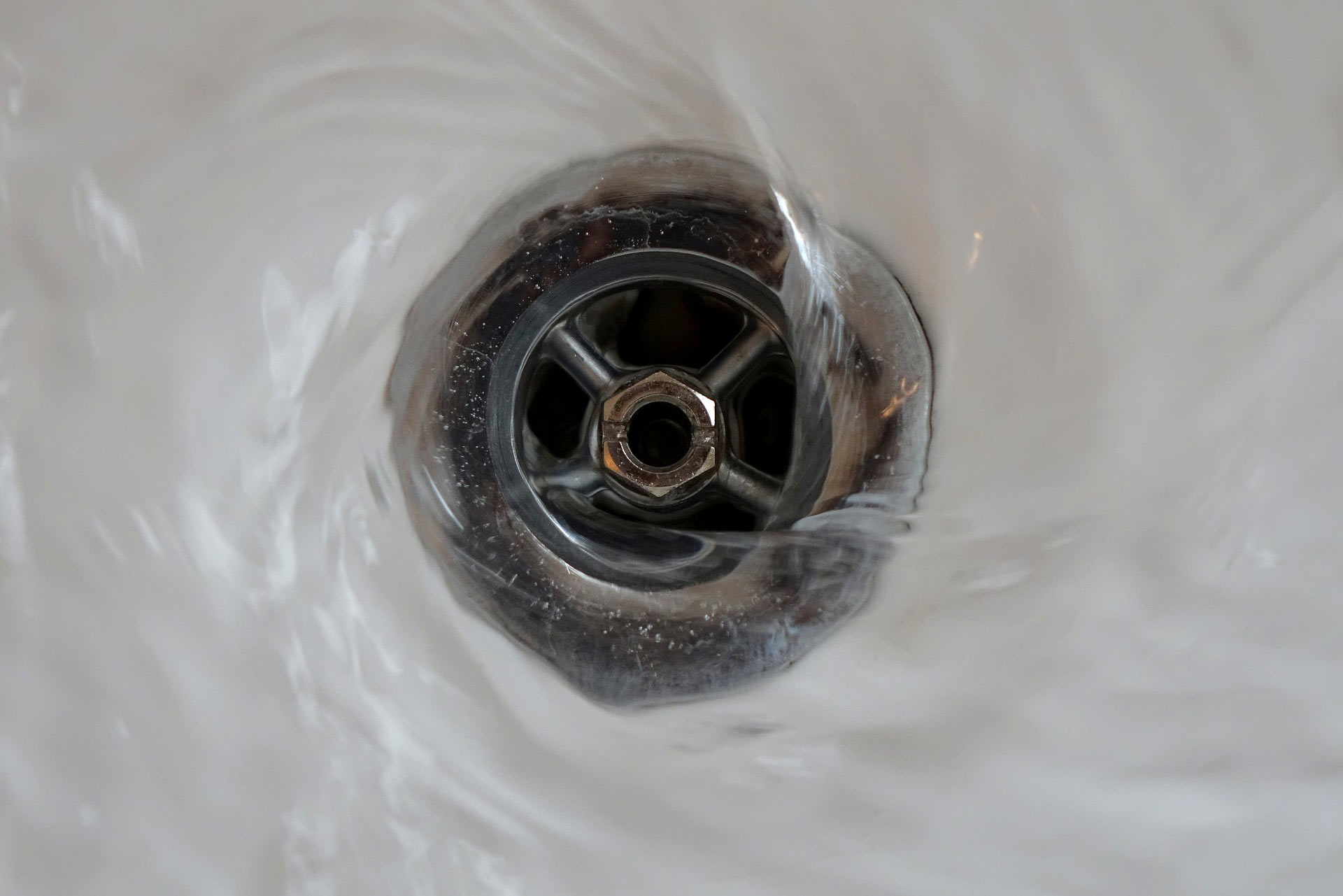



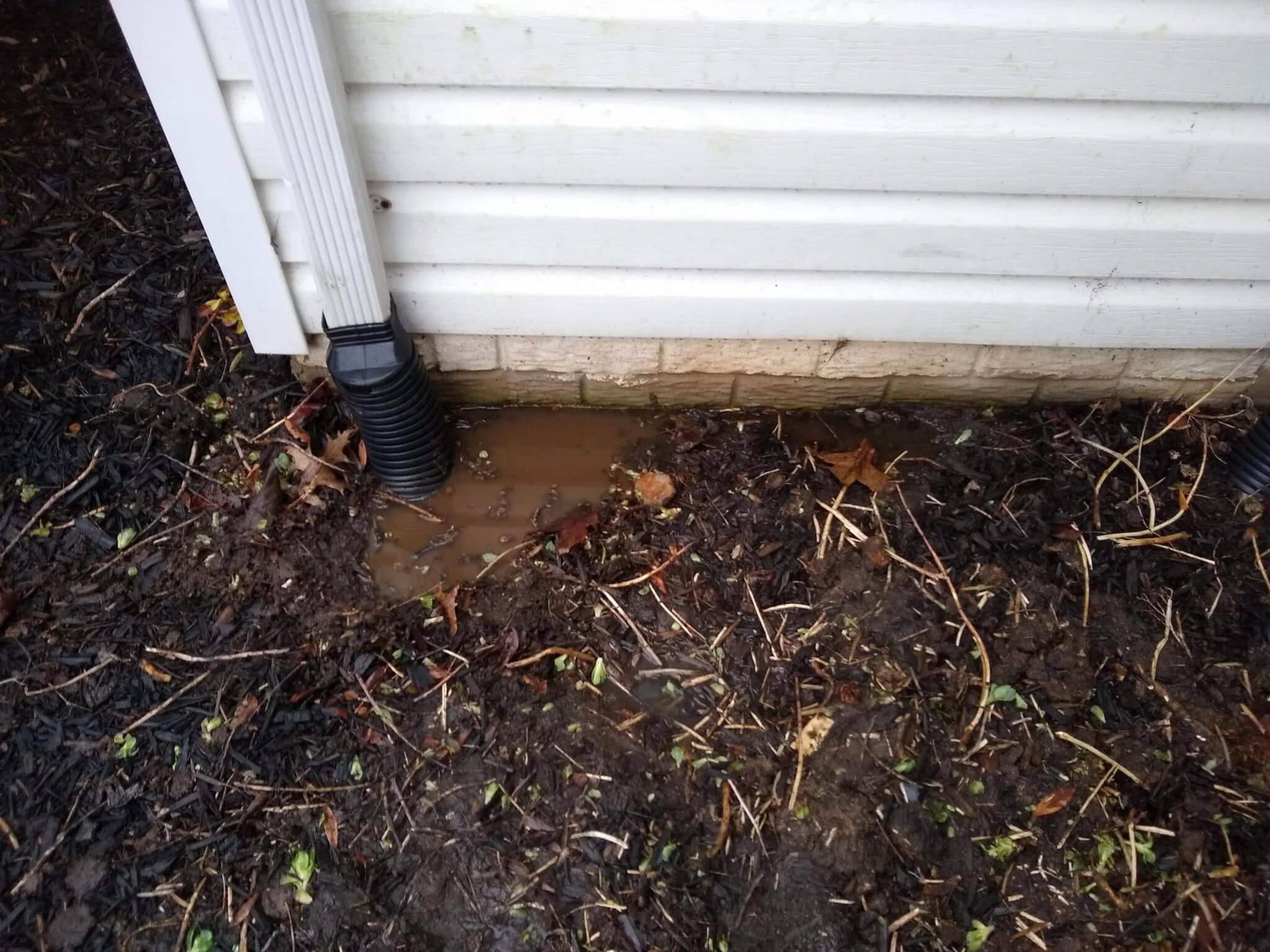



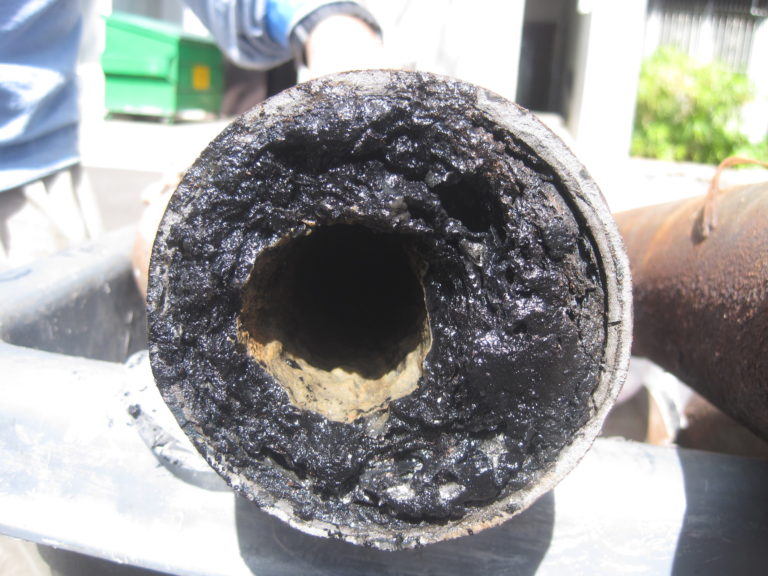









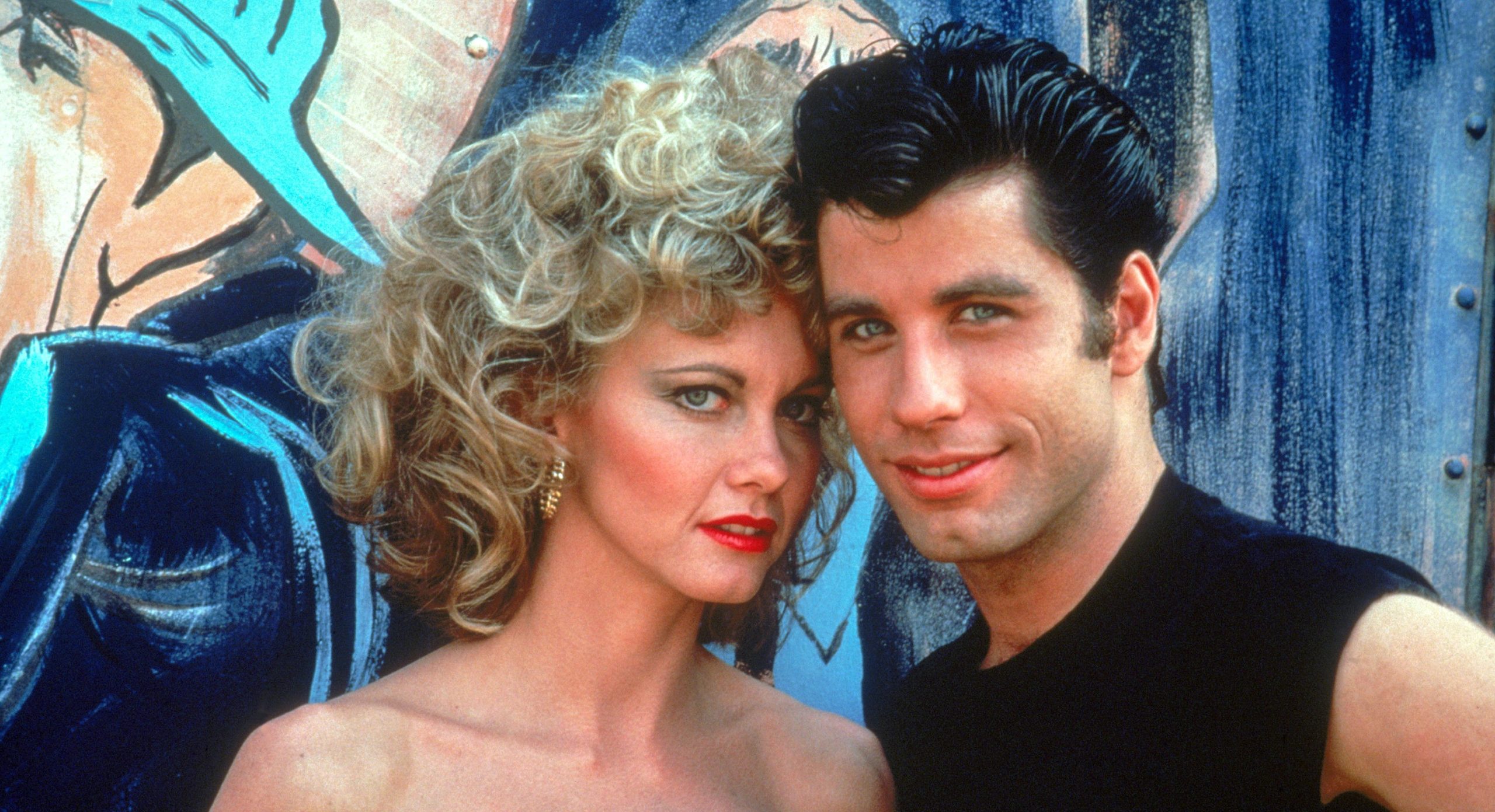
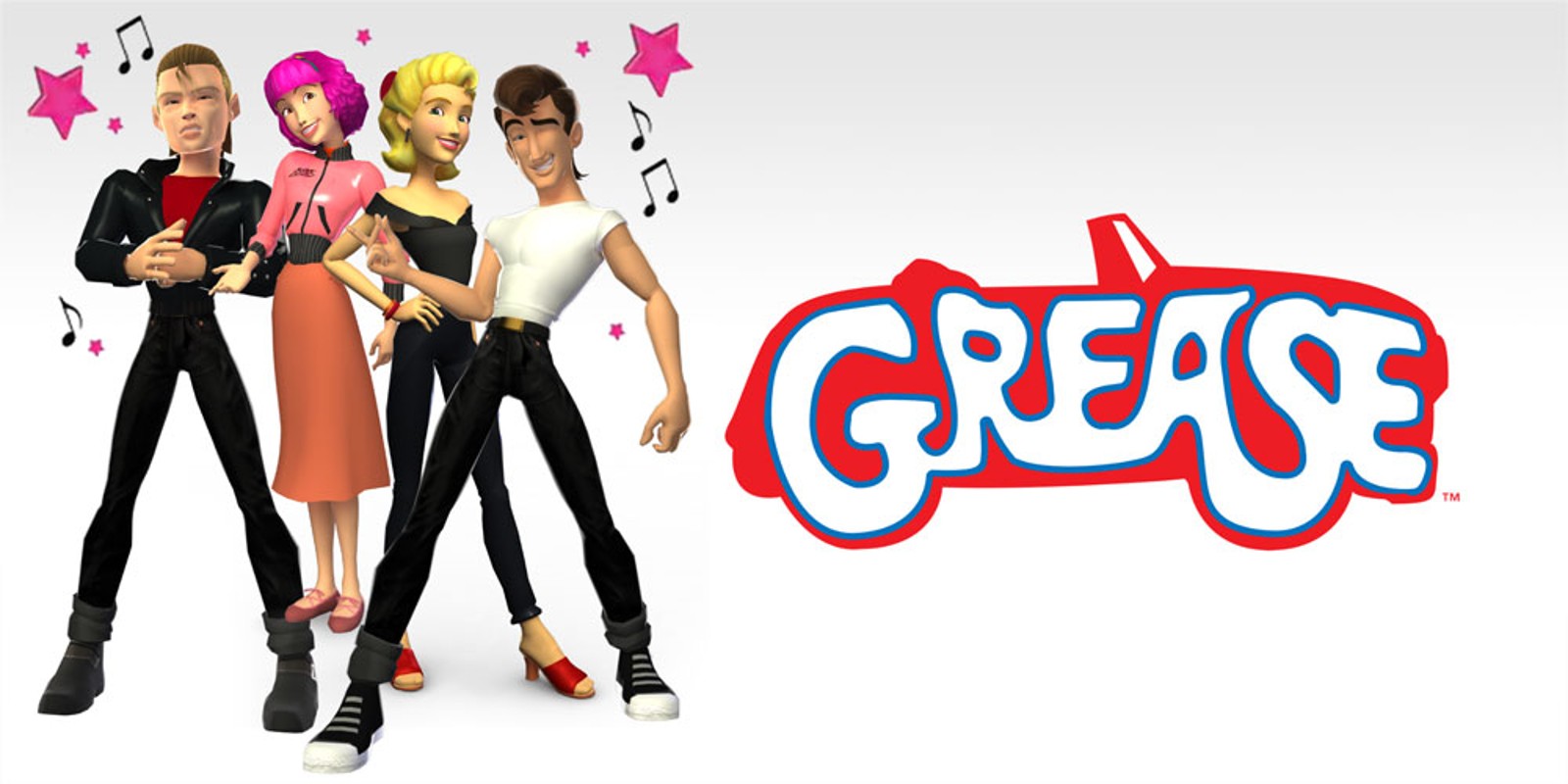









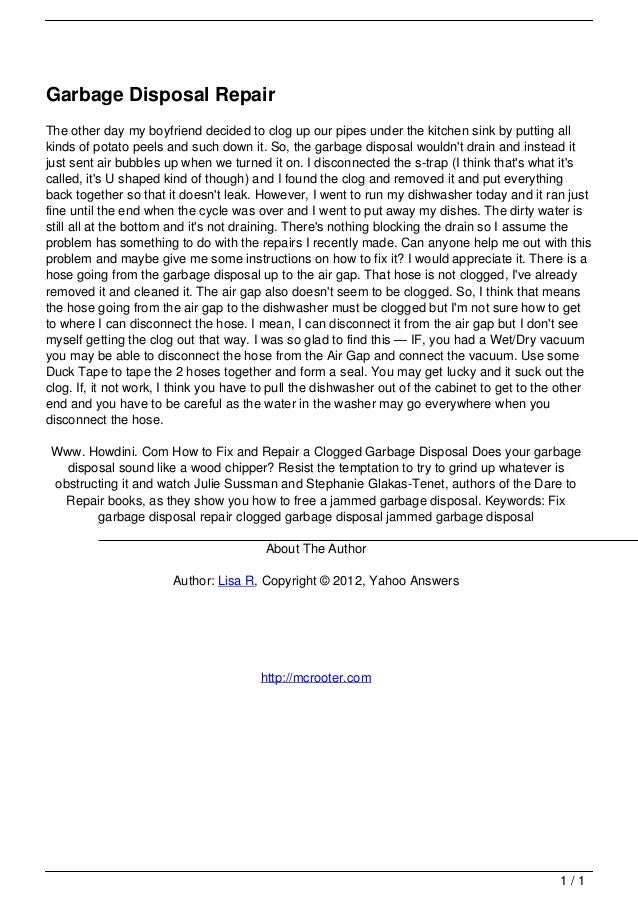



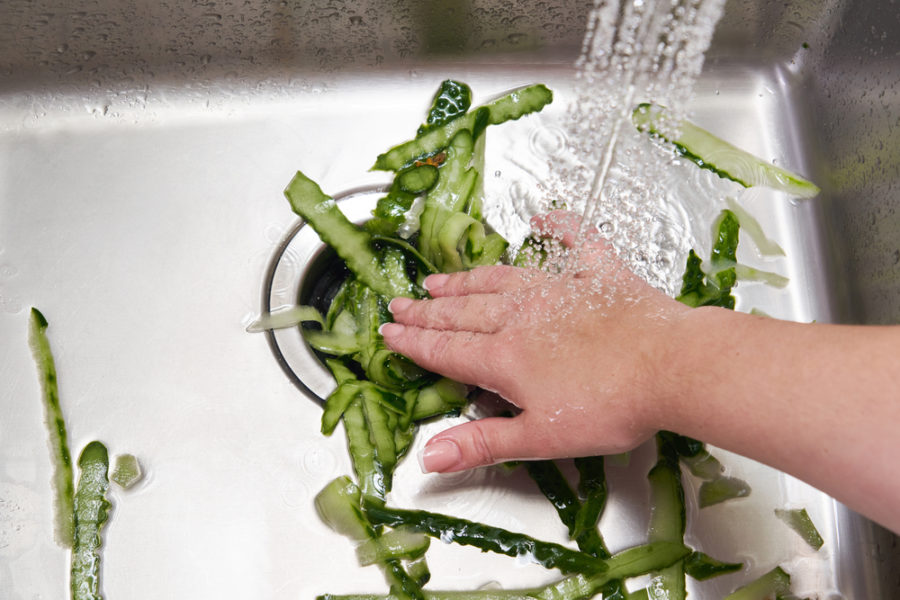







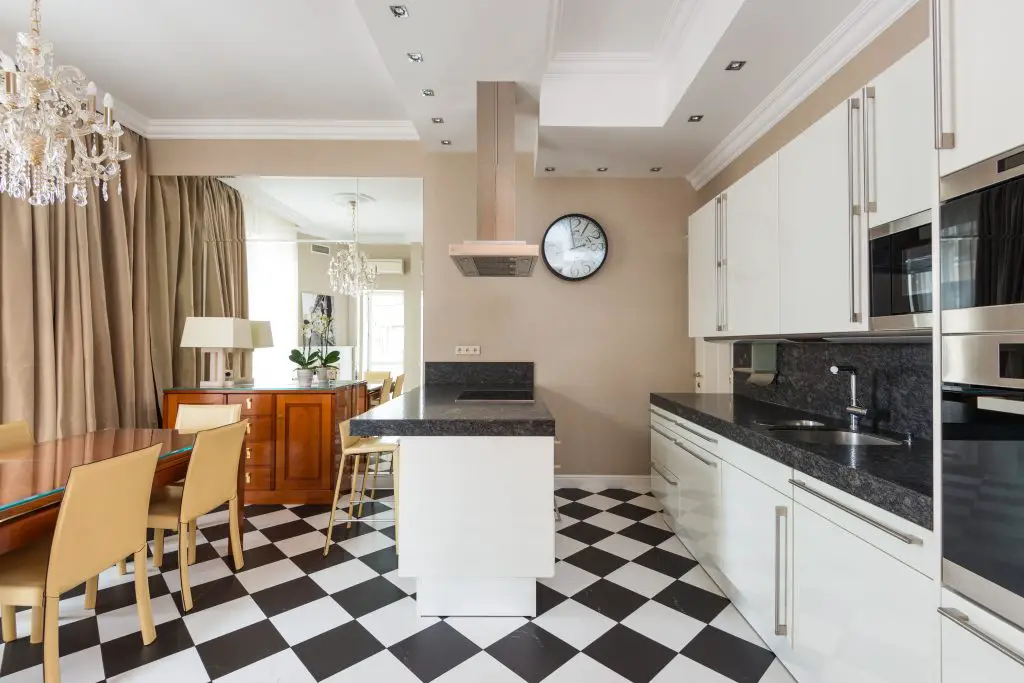
:max_bytes(150000):strip_icc()/bathroom-sink-drain-installation-2718843-07-2b728cbd5c994dc39179346f51bb6421.jpg)
